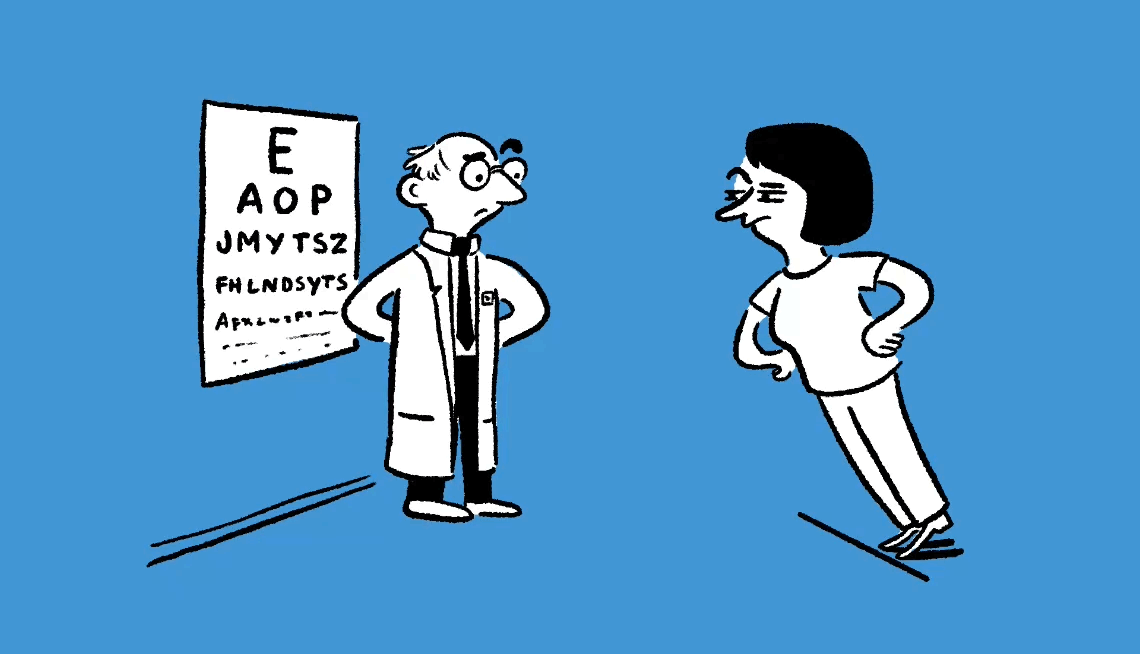AARP Hearing Center


Are there any ways I can keep my vision from getting worse?
Most of us need to adjust to our changing eyesight as we get older. For instance, I was wearing reading glasses to read a study in JAMA Ophthalmology that reported nearly 42 million folks on Medicare deal with vision issues. But I want to assure you this doesn’t mean you’re powerless to protect your sight. There’s quite a bit you can do to slow down or even prevent further decline.
To begin, let’s look at the most common vision issues.
If it’s challenging for you to see small print, like me, you probably haven’t escaped presbyopia. That’s another word for farsightedness, which usually begins in our 40s. Thank goodness for those reading glasses, right?
Cataracts are another common condition. They lead to blurred or dim vision as well as sensitivity to bright lights. Symptoms come on slowly but shouldn’t be ignored. In most cases, cataracts can be treated effectively with laser surgery.
One of the leading causes of vision loss is age-related macular degeneration, or AMD. There are two types: dry and wet. Dry AMD is more common.
Although AMD affects central vision, it won’t harm how you see peripherally. In most cases, medication and even some supplements can slow its progress.
Glaucoma is caused by increased pressure in the eye, which damages the optic nerve. But here’s the catch: There are usually no early symptoms. Unless you get regular eye checkups and the condition is diagnosed in a timely fashion and treated with eye drops or eye surgery, it can lead to blindness.


Ask Dr. Adam
Adam B. Rosenbluth, M.D., is an internist and cardiologist in New York City. Each Monday, he’ll weigh in on your questions about how to make your body work better for you. His AARP book will be published in 2027. Join in on the conversation on social media @dradamrosenbluth to learn to move the needle on your personal health in an achievable way.
If you have diabetes, high blood sugar levels may damage the blood vessels in your retina, and over time you’ll likely develop significant vision loss. It’s another reason why it’s important to stay on top of your insulin levels.
Yes, aging and certain health conditions play a role in vision loss, but so does lifestyle. That’s good news, because it means there are steps you can take to preserve your eyesight, even improve it.




































































You Might Also Like
21 Ways to Preserve Your Vision and Thrive
21 ways to take charge of your eye health
The Hidden Dangers of Progressive Lenses
Your glasses could put you at risk of serious falls
25 Great Ways to Build Healthy Habits
Cultivate lasting habits with practical, transformative tips